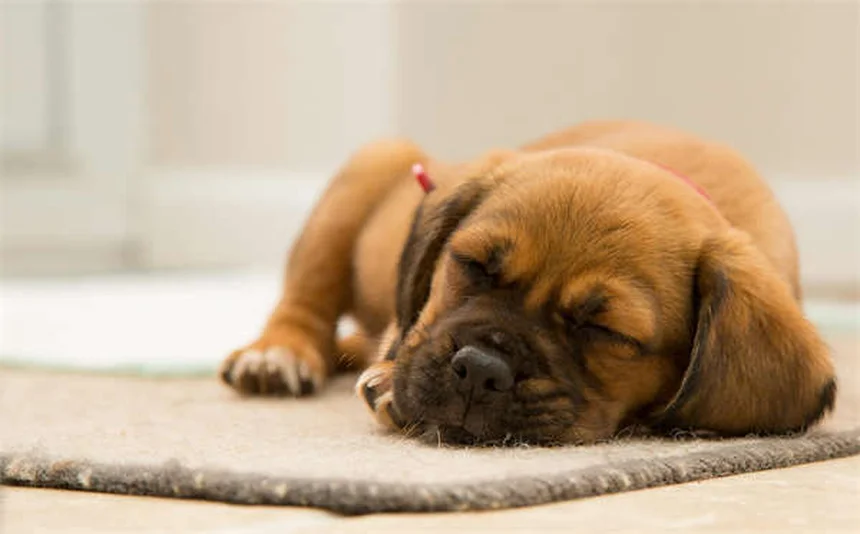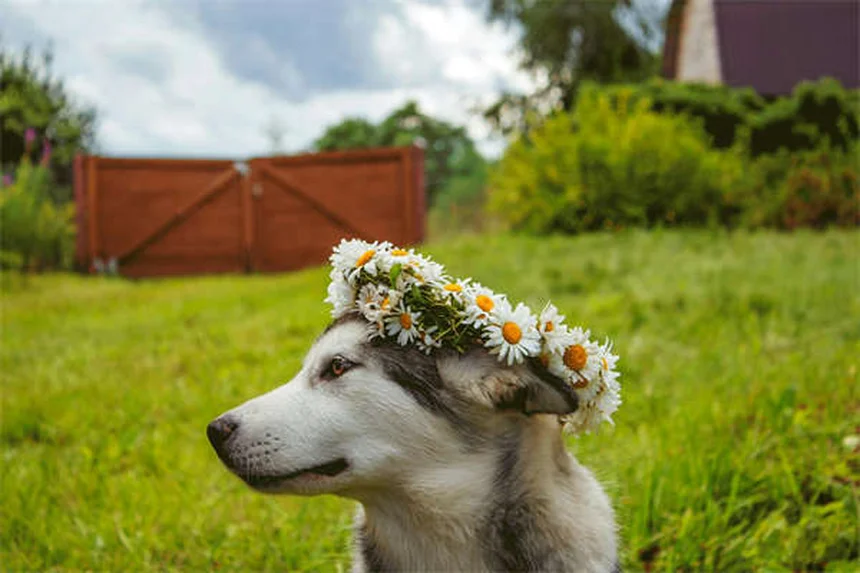Can rabbits get kidney stones? The answer is absolutely yes! Nephrolithiasis and ureterolithiasis (fancy terms for kidney and urinary tract stones) are serious conditions that affect many pet rabbits. Here's the deal: these painful stones form when calcium builds up in your bunny's system, often due to diet or lifestyle factors. The good news? With proper care, most rabbits can recover and live happy, healthy lives.I've seen too many rabbit owners miss the early signs until it's too late. That's why we're breaking down everything you need to know - from spotting symptoms to prevention tips that actually work. Trust me, your fluffy friend will thank you!
E.g. :How to Teach a Dog to Sit: 5 Proven Steps for Any Environment
Advertisement
- 1、Understanding Kidney and Urinary Issues in Rabbits
- 2、What Causes These Urinary Problems?
- 3、Diagnosing Urinary Issues
- 4、Treatment Options That Work
- 5、Living Well After Diagnosis
- 6、Beyond the Basics: Additional Considerations for Rabbit Urinary Health
- 7、Alternative Therapies Worth Considering
- 8、Prevention Through Play
- 9、When to Sound the Alarm
- 10、Building a Support System
- 11、FAQs
Understanding Kidney and Urinary Issues in Rabbits
How Rabbit Kidneys and Urinary Systems Work
Let me break this down for you in simple terms. Your rabbit's kidneys are like super-efficient filtration plants. They regulate blood pressure, balance electrolytes, and filter waste from the bloodstream. The ureters? Those are the tiny tubes connecting the kidneys to the bladder - think of them as nature's plumbing system!
Now here's where things get interesting. The urinary system in rabbits is particularly sensitive because of how their bodies process calcium. Unlike humans, rabbits absorb nearly all the calcium they consume, which can lead to some serious plumbing problems if we're not careful with their diet.
The Trouble with Stones: Nephrolithiasis and Ureterolithiasis
Ever heard the phrase "like a kidney stone"? Well, rabbits can get them too, and it's no laughing matter. These calcium deposits can block the urinary tract, causing pain and potentially dangerous infections.
Here's a quick comparison of the two conditions:
| Condition | Location | Common Symptoms |
|---|---|---|
| Nephrolithiasis | Kidneys | Often silent, may cause weight loss |
| Ureterolithiasis | Ureters | More likely to cause visible discomfort |
 Photos provided by pixabay
Photos provided by pixabay
Spotting the Warning Signs
Here's something that might surprise you: many rabbits show no symptoms at all until the problem becomes severe. That's why regular check-ups are so important!
When symptoms do appear, watch for:• Loss of appetite (your bunny turning up its nose at treats is a red flag)• Weight loss (that fluffy coat can hide a shrinking body)• Changes in urine color or output (dark or bloody urine means trouble)
What Causes These Urinary Problems?
The Diet Connection
You know how some kids will only eat pizza if you let them? Well, rabbits can be just as stubborn about their food choices. Alfalfa-based pellets, while tasty, are like candy for rabbits - too much can lead to urinary issues.
Here's why: alfalfa is naturally high in calcium, and rabbits absorb nearly all of it. Over time, this excess calcium can form crystals in the urine, eventually turning into stones that block the urinary tract.
Lifestyle Factors
Ever seen a couch potato rabbit? It's cute until you realize inactivity contributes to urinary problems. Obesity and lack of exercise slow everything down, including the urinary system.
Think about it this way: would you want to drink water if you never moved from your spot? Probably not. Same goes for your bunny - exercise encourages drinking, which helps flush out the system.
Diagnosing Urinary Issues
 Photos provided by pixabay
Photos provided by pixabay
Spotting the Warning Signs
When you visit the vet, they'll likely run several tests. Blood work and urinalysis are the first steps - these can show if there's infection or crystal formation.
But here's a question you might be wondering: "Why can't they just do an X-ray?" Great question! While X-rays can show larger stones, tiny crystals might only appear in urine tests. That's why multiple tests are often needed.
Assessing Risk Factors
Your vet will ask about your rabbit's lifestyle. Be honest about:• Diet (yes, those extra treats count)• Exercise habits• Water consumption• Living environment
Remember, we're not judging - we just want to help your bunny feel better!
Treatment Options That Work
Getting the Fluids Right
Dehydration makes everything worse. Your vet might give IV fluids to rebalance electrolytes and help flush out the system. It's like hitting the reset button on your rabbit's plumbing!
After treatment, monitoring is crucial. You'll need to watch:• Water intake• Appetite• Urine output• Energy levels
 Photos provided by pixabay
Photos provided by pixabay
Spotting the Warning Signs
Here's where you can really make a difference. Switching to timothy hay instead of alfalfa is step one. Add plenty of fresh greens - think of it as a rabbit salad bar!
Some great options include:• Romaine lettuce (not iceberg - it's mostly water)• Cilantro• Parsley• Dandelion greens (yes, the weeds in your yard!)
Living Well After Diagnosis
Creating a Healthy Routine
Prevention is better than cure, right? Here's how to keep your bunny's urinary system happy:1. Provide unlimited fresh water (change it daily)2. Encourage exercise with toys and space to hop3. Feed a balanced diet with limited pellets4. Schedule regular vet check-ups
Another question you might have: "Can my rabbit fully recover?" Absolutely! Many bunnies live long, happy lives after treatment. The key is sticking to the new healthy habits.
Long-Term Management Tips
Think of this as a lifestyle change, not just a temporary fix. Here's what works:• Keep those water bowls full (rabbits prefer bowls over bottles)• Make exercise fun with tunnels and toys• Monitor weight - a chubby bunny is at higher risk• Stay consistent with the new diet
Remember, you're not alone in this. Your vet is your partner in keeping your rabbit healthy. Together, we can help your bunny hop happily for years to come!
Beyond the Basics: Additional Considerations for Rabbit Urinary Health
The Water Factor You Might Be Missing
Did you know rabbits have a quirky relationship with water? Many bunnies prefer drinking from bowls rather than bottles, and this simple preference can make a huge difference in their hydration levels. I've seen cases where switching to a ceramic bowl increased a rabbit's water intake by 30%!
Here's a fun experiment you can try at home: place both a water bottle and a bowl in your rabbit's enclosure for a week. You might be surprised to find your furry friend splashing around in the bowl like it's their personal swimming pool. Just make sure to change the water twice daily - nobody likes stale water, not even rabbits!
Environmental Stress and Its Hidden Impact
Let's talk about something most rabbit owners overlook - stress. You wouldn't believe how much a noisy environment or frequent changes can affect your bunny's urinary health. Chronic stress triggers hormonal changes that can alter urine composition, making problems more likely to develop.
Think about your rabbit's living space. Is their cage near a blaring TV? Do you have dogs that bark constantly? Even something as simple as rearranging furniture too often can stress out your sensitive pet. Creating a calm, predictable environment isn't just good for their mental health - it directly benefits their physical wellbeing too.
The Age Factor: Special Care for Senior Bunnies
As rabbits age, their urinary systems become less efficient - just like how grandpa needs to visit the bathroom more frequently. Older rabbits often need additional support, including more frequent water changes and easier access to litter boxes.
Here's a comparison of urinary health needs at different life stages:
| Age Range | Water Needs | Diet Adjustments | Monitoring Frequency |
|---|---|---|---|
| Young (0-2 years) | Moderate | Growth-focused | Annual check-ups |
| Adult (3-5 years) | Consistent | Maintenance | Bi-annual checks |
| Senior (6+ years) | Increased | Low-calcium options | Quarterly monitoring |
Alternative Therapies Worth Considering
Herbal Supplements That Actually Help
While I'm not suggesting you turn your rabbit into a hippie, certain herbs can support urinary health. Dandelion leaf and marshmallow root have natural diuretic properties that can help flush the system. But here's the catch - you must consult your vet before adding anything to your rabbit's diet.
I remember one case where a client started adding parsley to their rabbit's meals after reading about its benefits online. Great idea, right? Well, they didn't realize parsley is high in calcium and ended up making the problem worse. That's why we always say: "When in doubt, ask your vet about the route!"
The Power of Physical Therapy
You might be thinking, "Physical therapy for rabbits? Are you kidding me?" Not at all! Gentle massage and assisted movement can significantly improve circulation to the kidneys and bladder. It's like giving your bunny a spa day with health benefits!
Start with simple techniques:• Gentle stroking along the back• Supporting their hindquarters during movement• Encouraging short walks on soft surfacesAlways watch for signs of discomfort and stop immediately if your rabbit seems stressed. Remember, we're going for relaxed bunny vibes, not bunny boot camp!
Prevention Through Play
Turning Exercise Into a Game
Here's a secret: rabbits are more likely to exercise if it doesn't feel like exercise. Create obstacle courses using cardboard boxes or hide treats in puzzle toys to get them moving. I've seen some creative setups where owners built miniature agility courses - their bunnies had so much fun they forgot they were being healthy!
The key is variety. Rotate toys weekly to keep things interesting. One day it's a tunnel made from PVC pipes, the next it's a digging box filled with safe materials. Your rabbit will stay active without realizing they're doing their urinary system a huge favor.
Socialization's Surprising Benefits
Did you know that lonely rabbits are more prone to health issues? Companionship stimulates mental and physical activity, which indirectly supports urinary health. Of course, introducing rabbits requires careful planning - you don't want to create more stress than you relieve!
If getting another rabbit isn't an option, increase your interaction time. Even just sitting near their enclosure while you read or work can provide comfort. Some of my clients swear by "bunny TV time" where they watch nature documentaries together - though I can't guarantee your rabbit will appreciate David Attenborough's narration as much as you do!
When to Sound the Alarm
Emergency Signs Every Owner Should Know
While we've covered the basics of prevention, it's crucial to recognize when your rabbit needs immediate veterinary attention. Complete lack of urination for 12 hours is a five-alarm emergency - don't wait to see if it improves!
Other red flags include:• Straining to urinate with no results• Blood in urine (not just dark coloration)• Complete loss of appetite• Lethargy combined with any urinary changesWhen in doubt, it's always better to err on the side of caution. Your vet would rather see a false alarm than a missed opportunity to help.
The Importance of Baseline Knowledge
Here's something many owners don't realize: you should know your rabbit's normal. How often do they typically urinate? What's their usual water consumption? Having this baseline makes it much easier to spot problems early.
Keep a simple log for a week to establish patterns:• Morning and evening water levels• Number and size of urine spots• General activity levels• Food consumptionThis doesn't need to be scientific - sticky notes on the fridge work perfectly. The goal is awareness, not perfection!
Building a Support System
Finding Your Rabbit Care Tribe
Dealing with urinary issues can feel overwhelming, but you're not alone. Online communities and local rabbit rescue groups can be invaluable resources. I've seen experienced owners share tips that even vets find helpful!
Look for groups that:• Encourage veterinary consultation• Share science-backed information• Offer emotional support without judgmentAvoid groups that promote unverified home remedies or dismiss professional care. Your rabbit deserves evidence-based support, not internet folklore.
Working With Your Vet as a Team
Your relationship with your vet should feel like a partnership. Come prepared with observations and questions, but also be open to their expertise. The best outcomes happen when owners and vets collaborate.
Here's a pro tip: before visits, write down:1. Any changes you've noticed2. Questions you want answered3. Any home remedies you've triedThis keeps the appointment focused and ensures you don't forget important details in the moment. Trust me, even the most attentive owners draw blanks when faced with an adorable bunny in the exam room!
E.g. :Kidney Failure in Rabbits | PetMD
FAQs
Q: What are the first signs of kidney stones in rabbits?
A: The tricky part about rabbit kidney stones is that many bunnies show no symptoms at all until the problem becomes severe. However, here are 5 red flags to watch for: 1) Loss of appetite (especially turning down favorite treats), 2) Weight loss (hidden under that fluffy coat), 3) Changes in urine (dark or bloody), 4) Lethargy or reduced activity, 5) Hunched posture indicating pain. Remember, rabbits are masters at hiding illness, so any behavior change warrants attention. If you notice these signs, don't wait - schedule a vet visit immediately.
Q: How can I prevent urinary stones in my rabbit?
A: Prevention starts with three key changes: diet, hydration, and exercise. First, ditch alfalfa-based pellets (too high in calcium) and switch to timothy hay. Second, encourage water intake by providing fresh bowls (not bottles) daily and adding wet greens. Third, get your bunny moving with at least 3-4 hours of exercise space daily. We've found that rabbits on this regimen have significantly lower stone risks. Bonus tip: regular weight checks help catch obesity early - a major risk factor!
Q: Are certain rabbit breeds more prone to kidney stones?
A: Here's the surprising truth: all rabbit breeds can develop nephrolithiasis and ureterolithiasis. However, middle-aged rabbits (2-5 years) seem most susceptible. While breed doesn't directly affect risk, lifestyle factors do. Indoor rabbits with limited space and pellet-heavy diets face higher risks regardless of breed. The solution? Focus on prevention strategies rather than worrying about breed predispositions. Every bunny benefits from proper diet and exercise!
Q: How does a vet diagnose kidney stones in rabbits?
A: Your vet will use a combination of methods: 1) Blood tests to check kidney function, 2) Urinalysis to detect crystals/infection, 3) X-rays or ultrasound to visualize stones. Many owners ask why we can't just do one test - here's why: small crystals might only show in urine, while larger stones need imaging. The complete picture helps determine the best treatment. Pro tip: bring a fresh urine sample (collected within 30 minutes) to save time and money on your visit!
Q: What's the long-term outlook for rabbits with urinary stones?
A: With proper management, most rabbits do remarkably well! The key is commitment to lifestyle changes. In our experience, rabbits switched to appropriate diets and given adequate exercise space have excellent quality of life. Recurrence rates drop dramatically when owners stick to the program. Remember: regular vet check-ups (every 6 months) help catch any issues early. Think of it like maintaining a car - routine care prevents major breakdowns!

